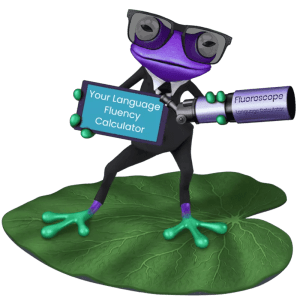Learn & Improve Your Vocabulary Skills in Business English

The Significance of Vocabulary Skills in Business English
English language learners worldwide know that English is recognized as the lingua franca of the business world. It’s one of the major if not the only reason that they’re looking to improve their proficiency in Business English. They could be job seekers picturing gainful employment in the corporate industry, business professionals aiming for advancement in their careers, expatriate leaders overseeing offices abroad, or new or established company owners expanding into an international enterprise. It’s futile to deny that Business English fluency is a priority. Obviously, a level of expertise in the subject of business organization is necessary. It goes hand-in-hand with a mastery of the English language. Without one or the other, success in any role in a multinational company would be difficult to achieve.
What are Business English Vocabulary Skills?
Vocabulary is the foundation of all languages. We won’t be able to express ourselves without it. Naturally, it’s the basis for all areas of any language, including specialized terminologies for particular functions. Business English is one of these specific areas of the English lexicon. For its intended use, attaining a large scope of business-specific words is essential. But an aptitude in Business English involves more than just learning technical terms, corporate lingo, and jargon. Building vocabulary skills are required to make word acquisition meaningful. Fundamentally, vocabulary skills include being effective in all aspects of English: reading, speaking, listening, and writing. They also comprise the ability to use the correct vernacular in different business contexts. In other words, vocabulary skills consist of choosing the right words in any given time and situation, therefore communicating in a highly effective manner.
3 Main Strategies to Improve Business English Vocabulary Skills
There are three general levels of English proficiency: beginner, intermediate, and advanced. The same system of ranking is also applied to all aspects of the language. The most central element to proceeding through the different stages is vocabulary. But some non-native English speakers have a richer vocabulary than others, and it’s of great interest why that is. The extent of an individual’s vocabulary knowledge actually depends on several factors:
- Real-world exposure.
- Word consciousness.
- Background experience.
This means people who read a lot, possess a genuine attentiveness to the functions and nuances of the English language, and actively pursue opportunities to speak or converse in English develop a wide vocabulary. In contrast, English language learners who are disinclined to read, show poor effort in talking, and lack the enthusiasm to know more about English get left behind. The good news is that it’s never too late for English students who don’t have a broad vocabulary to start enriching theirs. In general, whatever your English language level, there are three main ways to obtain vocabulary knowledge and enhance vocabulary skills.
1. Building Prior Knowledge and a Business Vocabulary
Due to the brain power and time needed for reading, many adult learners consider it a dreary or challenging task. Nevertheless, there’s an evident correlation between reading and articulacy. Many English students who are fluent are often insatiable readers as well. In any case, reading isn’t optional if you want to strengthen your English communication skills. In professional contexts, you’ll accomplish more at your place of work if you read a lot.
If reading seems dull or wearisome, remember that there are resources for every attention span and reading level. You can start with a variety of short text selections until you’ve developed patience and honest motivation for longer materials. Business books and online articles aren’t the only sources. You can begin with resources such as company profiles, product descriptions, brochures, services or product reviews, and marketing copy like landing pages and other similar campaigns. Then you can move on to business journals and articles, interactive learning programs, business-related blogs, and news. Try to find topics that fascinate you or are pertinent to your profession.
You’ll encounter new vocabulary. More importantly, you’ll learn these words as they’re used in context. All these things contribute to your background knowledge, which is a business-specific business you can access whenever you need to. Soon, you’ll be well-informed about a wide range of business topics. You could be discussing business plans with a counterpart, closing in on a deal during business negotiations, or writing and replying to all sorts of business correspondence. You’d already be sufficiently endowed with a professional business vocabulary.
2. Maintaining an Individualized Vocabulary Notebook
An oldie but goodie. Keeping your own vocabulary notebook unconsciously pushes you to spend active time with the words you’ve learned, which is a more effective way to remember them. Select vocabulary from English class notes. Decide on how to categorize the words. Copy them in a different notebook by listing them under their appropriate categories. Create a table of contents page and assign a few pages to each category. It will be easy to find words and add new ones later. You can be as general or as specific as you like with the categories such as sales, advertising, email closing lines, interview phrases, synonyms of “formal”, and so on. With a different color pen, you can write translations in your native language. Keep adding new words and categories until it’s time for notebook number 2.
A personalized vocabulary notebook is an invaluable learning and reference tool. When you remember a word but can’t recall what it means, you’ll know exactly where to find it. You’ll have a handy instrument to which you can refer when needed. If you’re looking for an English exercise to do on your own or during your free time, you’ll have a useful source for any activity you can think of. Pick a word and use it in a sentence. Pick five words and use them in a paragraph. How about ten words to tell a story? Say it aloud and record yourself. The possibilities are endless.
3. Honing English Skills in Conversation
In business contexts, conversation means talking to business associates, customers, and colleagues. This is expected in international companies. But interacting with people at work is different when you’re doing it as a task. It can be perfunctory, redundant, and uninvolved beyond stock topics. Besides this, you also need to initiate or join an actual chat. Although written communication is prolific in business, face-to-face conversations remain the best method to connect with clients, business partners, and coworkers. More than just talking, it’s about communicating well. People who express themselves fluently are often considered smart and reliable. Someone skillful in the art of conversation knows what to say to add value to and have an impact on a discussion.
Refining conversation skills include listening, speaking, practicing, and making mistakes. First off, the preoccupation to converse in perfect English is common among English language learners. They don’t want to make errors or risk getting criticized. While this could be somewhat commendable, it’s counterproductive and unrealistic. If the anxiety causes the person to stay quiet, that absolutely defeats the purpose of trying to be perfect. In fact, many English language learners have the bad habit of formulating their response before the other person is done talking, ignoring and thus missing the latter end of the dialogue entirely. Their replies end up disconnected because they’ve stopped listening.
The ability to take in or listen to information is just as important a part of conversation skills as the ability to present thoughts. So when in conversation, listen carefully to the speaker and wait until they finish. You can give a better answer if you understand their message fully. The person you’re talking to is also aware that you’re a non-native English speaker. They’d be happy to oblige if you ask questions or clarifications. You could also ask them to correct you or help you out when you speak. The road to great conversation skills is to listen and respond correctly, and accept that the road is littered with a lot of errors in grammar and word use.
Business English Vocabulary Skills Across Levels
Studying a corporate language training program is usually for the purpose of advancing a corporate career. Business English belongs to ESP or English for Specific Purposes, which is a field of specialized English instruction. Its main objectives are vocabulary acquisition and development, language skills integration, and effective corporate communication. In particular, you learn a specific lexicon and apply it to all aspects of business tasks. For teachers, the student’s pace of learning is a priority in Business English courses. So in self-directed study, it’s crucial to know your language level and use learning materials appropriate to your abilities.
In due course, formal English classes can’t stand on their own. Students who are already part of the labor force have the advantage of regular language exposure at work. But for learners who aren’t working yet, self-study is a must. English language learners who learn Business English have accomplished acceptable levels in the general study of the language, so these methods aren’t exactly unfamiliar: listening to podcasts, watching business-related TV shows and news, subscribing to online business channels, doing a ton of reading, using interactive learning software, and so on.
The strategies to acquire and develop a business vocabulary aren’t so varied. But by making adjustments in difficulty, these methods can be applied to any aptitude of vocabulary skills. Understanding what to expect for each level also helps. Continue reading to find the strategies we’ve assigned to more appropriate stages of proficiency.
Beginner Level Business English Vocabulary Skills
As mentioned, many of the strategies used for vocabulary acquisition are applicable to all skill levels. You can check out more in-depth articles for each level in our blog. You’ll find strategies that intersect, because ultimately, adjusting the difficulty is the deciding factor on how to utilize the materials at hand. For Beginner Business English Vocabulary Skills, it’s important to be familiar with the tools for learning. Intermediate and advanced-level students can always go back to the basics, but in your language learning journey, you’ll realize that the higher the proficiency you achieve, the need for basic materials also diminishes. Here are 5 tips to navigate the initial stage of learning business terminology.
5 Learning Tips for Beginner-Level Vocabulary Skills
1. Use the Dictionary and Thesaurus
You can use these reference books in their physical versions. However, there are many applications that integrate both functions into one tool. Using this initiates a deeper understanding of English vocabulary. It’s also an excellent preparatory method for your vocabulary notebook.
The advantages of developing familiarity with synonyms and antonyms are priceless. You’ll begin to observe that there are words that have distinctions from their synonyms. For instance, the word “colleague” is a synonym for “coworker” and “counterpart.” Although in some cases, these words are interchangeable, “coworker” implies that the person works with you in the same office or company. While “counterpart” is closer to an associate, which means you have an equivalent or identical status in your respective companies or departments.
Knowing the right words to use in verbal and written business communication is the first benchmark of vocabulary skill improvement.
2. Create a box of words
Look for a portable box that you can use to keep index cards or any kind of paper. Write one word per piece of paper. If the index cards are too big, cut them down to size. Put all the words in the box, adding more as you go along. After some time, you’ll have a big vocabulary collection. You can use it anytime to review yourself with the words you’ve learned. Pick a card and speak its meaning out loud. You can challenge yourself by picking more cards and using them in a single sentence. Or designating one as a topic and using other cards to make sentences in that context.
3. Subscribe to Online English Blogs
A lot of blogs for English language learning have daily exercises such as “word of the day”, fill in the blanks, interview questions, and so on. Some websites even have full lessons for free that are tailored for self-study. You can even take advantage of some chat features where you can meet and interact with like-minded people and ask complex English questions that other members can answer in real-time. Or you can check out the LillyPad blog for many other valuable articles like this one about English language learning.
4. Play word games.
There are old-school games that you can do on your own such as crossword puzzles or Boggle. Additionally, many online games put your up against an AI player such as Scrabble and Word Factory. It can be a fun way to expand your vocabulary. List down some words you like and add them to your vocabulary notebook or box of words. You can always play with other people as well. A face-to-face game session is an active way of knowledge sharing and improving relationships with people you can regularly communicate with in English.
5. Prepare for potential situations at work
If you have a robust vocabulary notebook, this activity is a breeze. Study and review words for certain business functions that you might encounter at work. You’ll be prepped well for any upcoming task. If you’re about to write a reply to a customer complaint, attend a meeting regarding quotas, present a project proposal, and so on, you’ll be equipped with a relevant arsenal of words to meet any language requirement at the office.
To learn more about basic vocabulary skills read our post, Beginner Business English Vocabulary Skills
Intermediate Level Business English Vocabulary Skills
At the intermediate Business English vocabulary skills level, you’re ready to take your methods up a notch. At this point, you’ll have the ability to take on using context clues in comprehending the meaning of a word. You’ll also be equipped in using synonyms at a more advanced capacity. In addition, your overall English skills will allow you to learn and remember longer expressions that are distinctly applied in an assortment of circumstances that arise at work. The following techniques can be used for advanced-level students as well, but with more complex and detailed content.
3 Useful Techniques for Intermediate Learners
1. Collect Vocabulary According to Functions
Organize common language used in certain functions at your job. You can collect these expressions in categories such as “Softening bad news”, “Polite rejections”, and so on. Chances are these situations will recur and you’ll recall the right language when you encounter them again.
2. Make Inferences by Using Context Clues
As your English skills improve, you’ll find that you need the dictionary less and less every time you come across a new word. Perhaps you’ve unconsciously started to make inferences when hearing or reading unfamiliar vocabulary. An inference is a conclusion based on logic. It’s best to be aware of this skill so you can actively incorporate it into the range of tasks you come across at the workplace. This is the ability to make an educated guess about the meaning of a word by looking at how they relate to other words in a sentence.
For example, “Her proposal was so incomprehensible that the attendees looked confused.”
What does incomprehensible mean? First, let’s consider what the word describes. Her proposal. How did the listeners react to it? They look confused. So you can infer that incomprehensible means unclear, confusing, or difficult to understand. You don’t need a dictionary for this one. Now list this word in your vocabulary notebook and use it when it suits the situation.
3. Learn Antonyms and Synonyms
Antonyms are word pairs that mean opposite to each other: local and foreign, cooperative and solitary, engaging and dismissive, and so on. Synonyms are word pairs with identical meanings. “Inform” is synonymous with “notify.” Saying “I will inform you of the changes.” And “I will notify you of the changes.” mean the same thing.
Word pairs are important in business vocabulary development, especially in writing business letters. Repeating the usage of a word in an email will make you sound unknowledgeable, incompetent, and annoying. Learning antonyms and synonyms can supply variety to your personal vocabulary and can improve your skills in persuasion and eloquence. You’ll be writing an email for the same purpose in a number of inventive ways. You can apply different tones, perspectives, and sensitivity. Verbally, you’ll be more engaging, prompting others to listen and trust you more.
To learn more about Intermediate vocabulary skills, see our comprehensive guide to Intermediate Business English Vocabulary Skills
Advanced Level Business English Vocabulary Skills
Some language attributes comprise many layers. Associating a word with other related terms, for example, can give you a holistic understanding of the nuances of the English language. Similarly, synonyms don’t stop at duplicates in meaning. There are implications or emotional depth attached to each alternative word. Parts of speech are another element that increases vocabulary skills. Many words have several forms which can be used differently concurrent to their functions in a sentence. All of these are essential to the enrichment of advanced Business English vocabulary skills. The following methods can also be used by intermediate-level students but at a lesser degree of content.
4 Methods to Boost Advanced Skills
1. Study Word Forms and Families
Word families are mostly associated with spelling or rhymes. But they can also include word groups originating from the same word or root word. For instance, the words bilateral, bilingual, and bicameral came from the word root word bi. On the other hand, word forms are taken from different parts of speech. For example, “develop” is the verb form, “development” is the noun, and “developmental” is the adjective. You can create maps in your vocabulary notebook. Studying word forms and families adds to background knowledge and eventual application, making your vocabulary stronger and more powerful.
2. Learn Collocations
Collocations are described as word combinations. These are common verb phrases derived from words that go together. Advanced-level students are familiar with collocations but will do well to recall their usage and importance from time to time. In Business English, this is even more vital because these phrases are commonplace and considered standard. Deviating from the usual arrangements will sound awkward or off and could possibly cause a breakdown in communication. For example, an accountant “does the accounts” not “perform” or “operate” them. We “do our due diligence” and not “make” it. We “cut” a deal but never “slice” it.
3. Create Word Associations
A language activity that many successful English language learners use is mapping word associations. While useful as a solitary activity, it can be done in pairs and often becomes a more entertaining exercise when small groups are involved. Healthy competition can add an element of fun, after all. The first thing to do is to come up with a word. “Customer,” for instance. Then spend a couple of minutes writing words, phrases, or expressions associated with it. Like “service”, “is always right”, “care”, “buy”, etc. After the time is up, the lists can be compared with all identical words disregarded. The pair or group with the most number of words left gets a point. This activity also opens a chance for disputes, challenging the connection of a word and explaining why the association is valid.
4. Learn Connotations
Synonyms are complex. Not all of them can be interchanged. Some distinctions are present even with the closest pairs. These differences are mostly rooted in emotional implications. These are called connotations and almost every word has them. The word “strict” has a neutral definition, which is “following rules”. Its synonym “firm” has a slightly affirmative connotation, which can be interpreted as slightly flexible to disobedience. But its other synonym “authoritarian” has a more serious tone and won’t be the slightest bit amenable to breaking the rules. Reading ripens this language sense. In corporate communications, where the need to be explicit is ordinary, knowing the most fitting term is necessary for the larger business environment. Business vocabulary development becomes more robust with the additional skill of being well-versed in connotations.
Using LillyPad.ai to Strengthen Vocabulary Skills
LillyPad.ai is a leading English language learning platform. Our instructional design for vocabulary skills development is aimed at all types of vocabulary: reading, speaking, listening, and writing. With a user-friendly interface and learning framework, we offer the best and most affordable solutions to your language requirements. LillyPad.ai is supported by a team of world-class ESL specialists who have had many years of teaching experience around the world. They use their expertise to design, collect, and update materials in our massive learning library, allowing our content to exceed industry standards in teaching principles and methodology. Members can take advantage of real-world English resources and various interactive features such as built-in dictionaries, audio recordings, virtual assistants, and so much more. They can also utilize a customizable personal page where they can collate their favorite lessons and materials, and track and manage their progress. With LillyPad.ai, advancing your vocabulary skills will be an enjoyable and highly rewarding journey of learning.
To learn more about advanced vocabulary skills, check out our post on Advanced Business English Vocabulary Skills
Conclusion
Business vocabulary development, including vocabulary skills, is necessary to succeed in any business career. Language assimilation works best with the right knowledge and ability to utilize the vocabulary learned. There are general practices to achieve the perfect merge: reading, active learning of vocabulary, and regular conversation. These principles are a must across all levels of vocabulary skills. Additionally, each level has complementary strategies that Business English students can follow to increase their proficiency.
Frequently Asked Questions
A professional vocabulary is that aspect of the English language reserved for use in business communication. These are English phrases, words, sentence structures, etc. that aren’t used in daily, social conversations. It gets more complex when you consider that another layer of Business English vocabulary is further specialized according to industry. We call this body of language “jargon”, which involves terminology unique to a particular profession. An architect, for example, will have an exclusive vocabulary that’s different from a teacher, or a police officer.
In any business career, there’s a broad assortment of tasks with different language requirements. An in-person meeting will have different language needs than a business letter. Many of the phrases we use in emails can’t be used in face-to-face interaction. You can’t say “to whom it may concern” to address attendees inside a boardroom. Also, business letters generally demand a formal tone. Formal language is polite, at times indirect, and occasionally wordy. Verbal communication adheres to an identical thread, with changes to its terminology. If you don’t know which vocabulary to use under these unique circumstances, a breakdown in communication can occur. This can lead to negative results for any enterprise.
If it’s business subjects or topics you’re referring to, you’ll find an entire universe of information about each one. Remember that the English language is universal in business. This means a hefty percentage of local and international enterprises produce corporate literature in English (information on products, services, and their own companies). Business news, and almost anything in the business field really, are widely available in English. A single google search will give you a ton of English resources on any business-related topic. The sheer size of information, broken down to specifics from all sorts of perspectives and expertise, is enough to give you the most and the best information about anything.
The office is ripe with business terminology for recurring functions. You need to foster an awareness and genuine interest in listening, absorbing, and using the language. You can use a vocabulary notebook to collect the words you’re exposed to every day. List them under useful categories such as business conference words, sympathetic replies to customer complaints, power words for marketing, and so on. Interact with your colleagues about topics that aren’t necessarily tied to office tasks. Talk about competitors, business strategies, investment opportunities, etc. Topics of a personal nature couldn’t hurt as well. Try to spend your free time learning about corporate language at home. Study business formats in emails, product reviews, company profiles, and many others. You’ll eventually have reliable background knowledge of local and international business topics that you’ll be able to use with ease.
“Speak” is the operative term. Business books won’t teach you how to talk (literally speaking, that is). Many English students start out by memorizing endless lists of words and sentences without ever having any idea what they mean or retaining most of it. They think that they know English, but they really haven’t learned much beyond the basics. When they finally do try to communicate, they often repeat the same mistakes. You can’t just sit back and hope that your knowledge of English will magically improve. You must put yourself out there and actually say something. Because you can study a wide range of business vocabulary until you’re covered in advanced business jargon, but you’ll lose everything if you don’t speak. Let’s say speaking like a “professional” is the only thing that interests you. It’s still a vague mindset because each professional has different manners. But generally speaking, a professional speaks with a polite, firm, and formal tone. They always use the right words and behave appropriately no matter who they’re addressing at work.
LillyPad.ai is currently the leading language-learning software in English. We provide affordable, world-class solutions to your learning needs. Our platform’s unique approach involves interactive features like a built-in dictionary in reading materials, a language check assistant, audio recording for feedback in pronunciation, an automatic function that collects and generates your favorite lessons and materials to an exclusive personal page, and many more. Besides LillyPad.ai’s user-friendly interface, the content is created and updated regularly by ESL experts. We have a team of language specialists who have years of experience in teaching ESL worldwide. At LillyPad.ai, we continue to upgrade our learning methodologies and strategies to create more options to facilitate vocabulary acquisition and development.
Learn from History – Follow the Science – Listen to the Experts
What’s the one thing that makes LillyPad so special? Lilly! She is a personal English tutor, and has people talking all over the world! Lilly makes improving your English easy. With Lilly, you can read in four different ways, and you can read just about anything you love. And learning with Lilly, well that’s what you call liberating!
For learners of all ages striving to improve their English, LillyPad combines the most scientifically studied and recommended path to achieving English fluency and proficiency with today’s most brilliant technologies!
Additionally, the platform incorporates goal-setting capabilities, essential tracking & reporting, gamification, anywhere-anytime convenience, and significant cost savings compared to traditional tutoring methodologies.
At LillyPad, everything we do is focused on delivering a personalized journey that is meaningful and life-changing for our members. LillyPad isn’t just the next chapter in English learning…
…it’s a whole new story!
Do you want to improve your English? Visit www.lillypad.ai.
William Landry
William is a professional English and ESL teacher with over 15 years of experience. He has taught students of all ages, from children to business executives, and has worked with ESL learners from all over the globe. With a degree in English Education, William has developed curriculum for learners of all levels and interests. He is passionate about helping people learn English effectively and shares his knowledge with the LillyPad community. When he’s not teaching or writing, William enjoys spending time with his wife and two young children.














